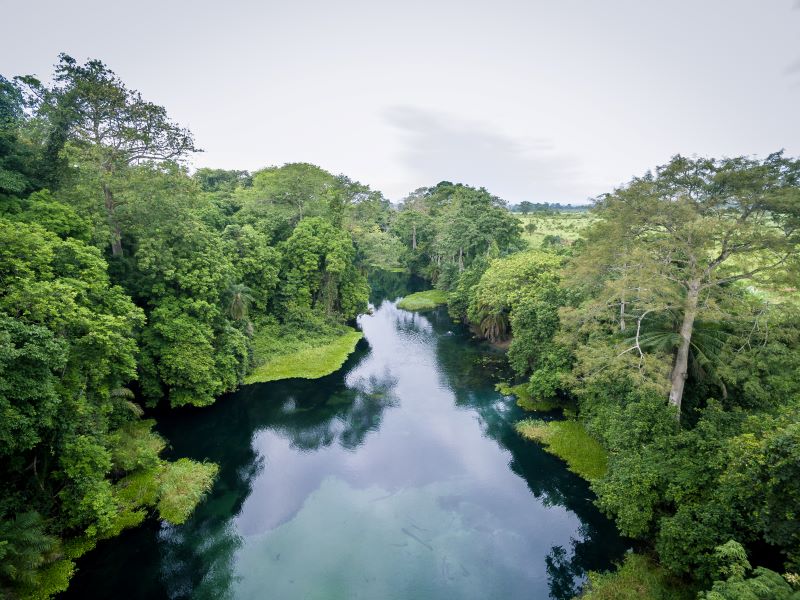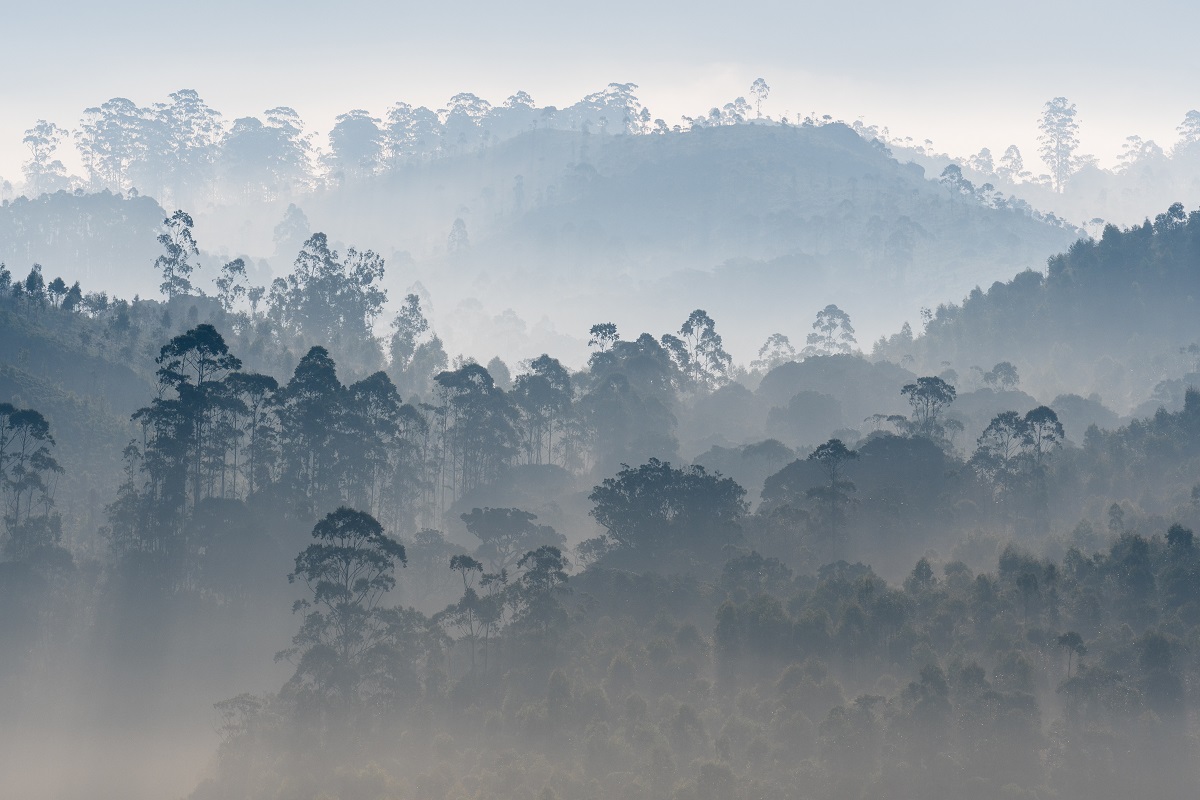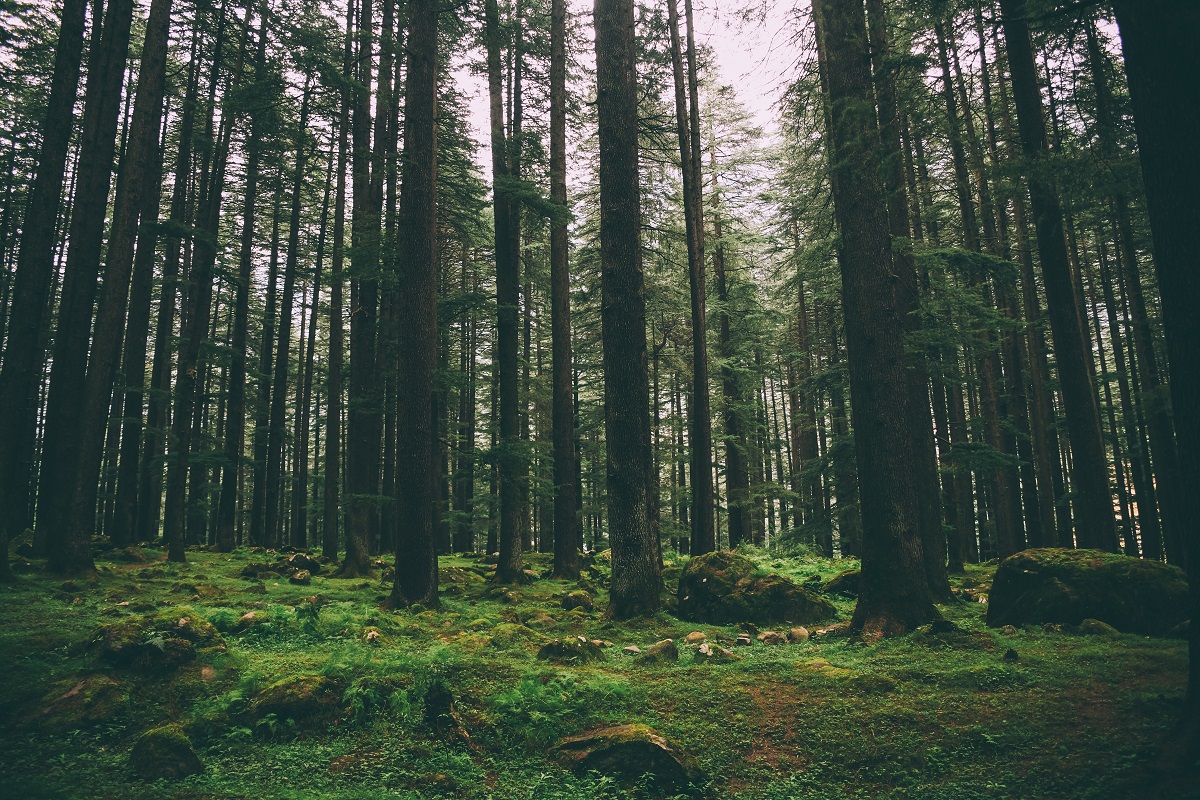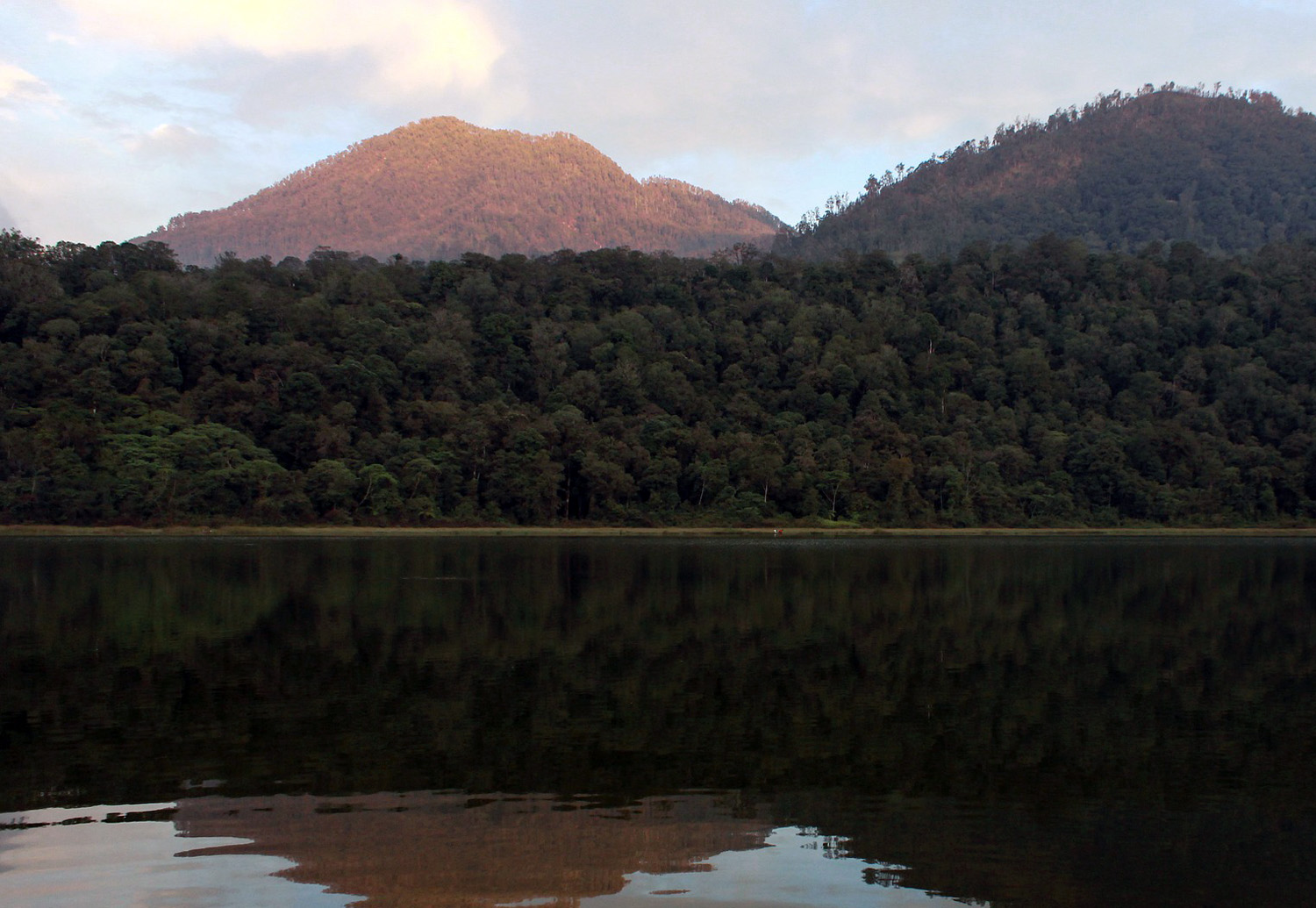This essay addresses the challenges likely to be faced by corporations and non-governmental organizations as they collaborate to implement recent commitments to deforestation-free commodity supply chains. The essay takes as its inspiration and a source of lessons learned Theodore Roosevelt’s 1913-14 expedition to explore the River of Doubt, a tributary of the Amazon river in Brazil [i] .
Just over 100 years ago in 1913, former U.S. President Theodore Roosevelt set off on an adventure. The previous year, his campaign for a third term in the White House had been unsuccessful.
The Brazilian government invited him to join Colonel Candido Rondon on an expedition to explore an uncharted river in the most remote part of the Amazonian rainforest. The focus of the expedition was a river then called the River of Doubt (now called the Roosevelt River). Colonel Rondon, after whom the state of Rondonia is named, had recently discovered the headwaters of the river. He was eager to explore it, and to confirm that it was indeed a tributary of the Amazon.
The expedition was co-sponsored by the American Museum of Natural History, and one of its purposes was to collect specimens of newly discovered plants and animals. Col. Rondon and President Roosevelt would lead the first non-indigenous party to follow the River of Doubt from its source to its confluence with the Amazon River.

Participants in the River of Doubt expedition. Photo: Wikimedia Commons
The expedition got off to a bad start.
The party quickly discovered that they were ill-equipped for the journey. The design of their boats was completely inappropriate for navigating the river’s many challenging rapids. Their food provisions were inadequate, and hunting and fishing not as productive as anticipated. Shortages led to rationing and conflict, and even one murder among the crew. Roosevelt himself came down with malaria, and sustained a leg injury that became infected, and he almost died.
But the expedition also enjoyed good luck. Although hostile indigenous groups kept the party under surveillance from riverbanks along the way, they allowed the expedition to pass through their territories unharmed. And just at the point when the explorers were crippled by sickness, hunger, and exhaustion – only about a quarter of the way down the river – they were rescued by poor local rubber-tappers who provided food and other assistance, and escorted them the remainder of the way down the tributary.
After being nursed back to health in Manaus, Roosevelt returned to New York in 1914, only to face skepticism that he had actually made the journey down the river. A second expedition by another explorer more than ten years later finally confirmed Roosevelt’s extraordinary achievement.
A century after the River of Doubt expedition, a number of companies embarked on their own challenging adventure in the form of a wave of private sector commitments to deforestation-free supply chains. Participants in this new expedition include the companies that have made the commitments, such as Wilmar International and Asia Pulp and Paper; advocacy organizations that have pushed them to do so, such as Greenpeace and Rainforest Action Network; and service providers that are helping companies follow through on implementation, such as TFT and Rainforest Alliance.
The River of Doubt expedition is inspiring for participants in today’s expedition to green commodity supply chains
The River of Doubt expedition is a source of inspiration for participants in today’s expedition to green commodity supply chains.
Context
First, a comparison of the context then and now.
In Roosevelt’s era, tropical forests were the focus of exploration and discovery. Governments and museums sponsored expeditions to inventory their riches, both economic and biological. Having spent the last century exploiting those riches, we’re now focused on protecting the tropical forests that are still standing. Through the miracle of satellites, today we can peer down into tropical forests at 30 meter resolution, and it might feel as if there is no mystery left to investigate.
But the era of discovery isn’t over.
Even now, new species continue to be discovered, so the collections assembled through expeditions such as Roosevelt’s are still not complete. A recent front-page story in the Washington Post [ii] describes caves used by prehistoric peoples in Brazil that remain unexplored.
More importantly, just about every week, a new scholarly article is published telling us that tropical forest ecosystems are even more important for human well-being than we had previously thought:
- A CIFOR study [iii] published last year documents that households in and around forests derive on average more than a fifth of their incomes from wild forest products.
- A recent paper [iv] shows that deforestation in Indonesia is associated with increasing incidence of malaria.
- A new meta-analysis [v] shows how deforestation can affect rainfall at continental scales.
- And not least, the most recent analysis [vi] indicates that if we stopped deforestation, and allowed damaged forests to grow back, it could mitigate some 24-30 percent of current global climate emissions.
So even as our ability to track the loss of forests gets better and better, our appreciation of their value to local communities, to national economies, and to global climate stability continues to grow.

Deforestation caused by globally-traded commodities. Photo: Rainforest Action via Flickr, Creative Commons
Theodore Roosevelt was a champion of conservation in his day, and the River of Doubt expedition contributed to knowledge about tropical forests in an era when many of their values were still unknown. What we know today makes stopping deforestation – the objective of the contemporary journey toward deforestation-free supply chains – a moral imperative for our generation.
Overcoming doubt
What we know today makes stopping deforestation a moral imperative for our generation.
An interesting similarity between the River of Doubt expedition and the effort to get deforestation out of supply chains has to do with overcoming doubt. The River of Doubt was so-named because it was questionable whether or not it really was a tributary of the Amazon. But the name “Doubt” had at least two other more figurative applications in the context of the River of Doubt expedition.
The first had to do with Roosevelt’s state of mind. Teddy Roosevelt was a widely admired, larger-than-life man who had served two terms as President of the United States. But in 1913, he was demoralized and depressed by his loss to Woodrow Wilson in the presidential election of 1912. I don’t think you have to range too far into pop psychology to imagine that he might have felt that after his humiliating defeat, he had something to prove. And maybe this feeling contributed to his eagerness to join the River of Doubt expedition.
It might not be too much of stretch to suggest that many of the corporate leaders who now champion forest conservation have had their moments of being demoralized and depressed too — when they’ve been demonized for their association with tropical deforestation. No one wants to be vilified in videos that go viral, linking your brand to images of scorched earth and orphaned baby orangutans. So maybe a willingness to sign up to ambitious commitments is in part about proving who you are and what you stand for amidst doubt, which can be a powerful motivation.

Activists attack global brands. Photo: Greenpeace Finland via Wikimedia Commons
The second figurative application of the word “doubt” is connected to what happened to Roosevelt when he returned from New York, half-dead from his exertions, only to face people who doubted that he had actually completed the expedition as he had claimed. I can’t help but see a similarity to challenges of transparency, traceability, and verification that the corporate community is now facing to prove that their commitments to stopping deforestation are actually being implemented. Teddy Roosevelt would feel their pain. Even his legacy required a third-party audit in the form of second expedition to prove what he’d accomplished.
Corporate officials should harness the energy that comes from having something to prove, and not be irritated when society requires proof of success.
Risk
Another set of similarities has to do with risk.
When Colonel Rondon and President Roosevelt made their commitments to the River of Doubt expedition, they literally had no idea what they would encounter over the nearly one thousand miles of uncharted territory. They could only guess what sort of crew, equipment, and provisions they would need. But once they had launched their boats down the river, there was no turning back.
Many companies have been similarly courageous in making commitments to deforestation-free supply chains without having a clear map of what would lie ahead. And with that comes uncertainty about whether the capacities of their organizations, their suppliers, and their support systems would be up to the task.
But once supply chain commitments are made, just as once the boats are in the river, there’s no turning back. Activist NGOs and the media are doing a good job of alerting investors, buyers, and ultimate consumers to the linkages between commodities and deforestation. Society’s norms have changed, and there’s really no alternative but to meet their rising expectations.
And it’s not just the companies that are risking their reputations through these commitments. The NGOs that have lent their credibility to endorsing corporate commitments are in the same boat, and have a lot to lose if things go wrong.
Not surprisingly, just like the River of Doubt expedition, businesses and NGOs are learning that some of their equipment is not fit-for-purpose and that some of their provisions are insufficient to the new tasks at hand.
- Internal skill sets and incentives need to be adjusted.
- New tools for traceability need to be developed.
- Industry certification standards are lagging behind new norms.
- Government policies are not always supportive of the new commitments.

Certification standards lag behind new commitments. Photo: Roundtable on Sustainable Palm Oil www.rspo.org
President Roosevelt and Col. Rondon were stuck with the expedition gear that they set off with, however inadequate it proved to be. Luckily, participants in today’s expedition have the luxury of augmenting along the way the institutional infrastructure necessary to support implementation of supply chain commitments.
One of the ways to do so is through partnerships. Let me suggest three kinds.
Partnerships between businesses and NGOs
The wave of supply chain commitments that have been announced over the last few years have been made by different kinds of companies, including producers, traders, manufacturers and retailers. They have been nagged or cheered on by different kinds of NGOs, including both watchdogs and hand-holders. They all share a common objective of deforestation-free supply chains. Achieving success will be a team effort. But as with the crew of the River of Doubt expedition, different members have different roles.
It wasn’t too long ago that corporate leaders and activists were not even on speaking terms. It was a world of good guys and bad guys, to the point that NGOs that tried to work with business were often accused of complicity in greenwash. Now we’ve got Greenpeace collaborating with Golden Agri Resources in pioneering a method to identify and protect high carbon stock forests from conversion to oil palm; the leaders of TFT and APP jointly undertaking a road show to explain the company’s commitment; and the CEOs of Catapult and Wilmar International publically lavishing praise on each other. What’s the world coming to?

CEOs of Catapult, Wilmar International, and TFT. Photo: Scott Poynton, www.scottpoynton.com
But these are new relationships, and conflict is inevitable. It got so bad on the River of Doubt expedition that one crew member murdered another. So it’s worth investing in clarifying roles and expectations of each other, so that misunderstandings don’t get out of hand.
Those who have done backpacking and mountaineering might have heard the term “Expedition Behavior”, referring to how you should behave when you’re on an expedition. Here’s the list [vii] of expedition behaviors popularized by the National Outdoor Leadership School (NOLS), and I think we could easily adapt these rules to apply to the organizations collaborating on the journey to deforestation-free supply chains:
- Serve the mission and goals of the group.
- Be as concerned for others as you are for yourself.
- Treat everyone with dignity and respect.
- Support leadership and growth in everyone.
- Respect the cultures you contact.
- Be kind and open-hearted.
- Do your share and stay organized.
- Help others, but don't routinely do their work.
- Model integrity by being honest and accountable.
- Admit and correct your mistakes.
While all of these are important, I think the last three will prove particularly important in the context of implementing commitments to deforestation-free supply chains. Different for-profit and not-for-profit organizations will have to figure out how to collaborate without straying too far from their core missions and competencies. Companies and NGOs will need to be transparent about the achievements and shortcomings of their efforts in order to maintain credibility with each other and to the public.
Partnerships with local communities
A second type of partnership is forged in the context of relating to the communities that live in forests. Recall that the very survival of the River of Doubt expedition depended on getting this part right, and I think the same is true for corporate supply chain commitments.
Companies need to look to smallholders as part of the solution in the quest to produce deforestation-free commodities.
A lot of attention has appropriately been given to ensuring that no-deforestation commitments also include respect for the rights of indigenous peoples, for example, by ensuring that Free, Prior, and Informed Consent is obtained in advance of agricultural development on their territories. The River of Doubt expedition made it through despite having failed to obtain such consent, but subsequent expeditions were not so lucky.
And what about smallholders? The River of Doubt expedition was saved by the kindness of strangers in the form of poor rubber-tappers, who rescued them and helped them complete their voyage. Similarly, companies should to look to smallholders not as a source of risk to be avoided, but as part of the solution in the quest to produce deforestation-free commodities.

Smallholder cocoa farmers. Photo: Rainforest Action via Flickr, Creative Commons
Partnerships with producer governments
A third type of partnership is with the governments of producer countries.
Remember that although Teddy Roosevelt was a private citizen at the time, he was invited to join the River of Doubt expedition by the Government of Brazil, and that the expedition was to be led by a Brazilian government official.
It is certainly true that even without direct government support, private sector commitments to stop deforestation are significant in their own right. A huge area of the world’s forested real estate is controlled by the companies that have made commitments along with the areas controlled by their suppliers. Some of you might have seen that I went out on a limb in a blog [viii] , speculating on the causes of the recently reported decrease in Indonesia’s deforestation rate in 2013. I suggested that voluntary restraint in clearing forests on the part of private companies was at least as likely to have contributed to the decrease as any particular government policy action.
But voluntary restraint by private companies cannot succeed in the long run without government support. Not least, only the government can enforce the law. Last year, a Forest Trends report [ix] estimated that nearly half of tropical deforestation is the result of illegal clearing for commercial agriculture.
And only governments can change the perverse policies current in place that work against the success of corporate commitments. I’m thinking of regulations in Indonesia that allow land within concessions voluntarily set aside by companies for conservation to be reallocated for development by other companies. Or policies in many countries that subsidize bioenergy without taking account of their impact on landuse. A recent ODI report [x] estimates that subsidies to the drivers of deforestation in Brazil and Indonesia dwarf development assistance to protect forests by a factor of 60.
As a result, one of the most important impacts of the recent wave of commitments to deforestation-free supply chains is to create a new private sector constituency for better laws, policies, and enforcement related to forest management. For example, the Indonesian Palm Oil Pledge [xi] explicitly commits the signatory companies to engagement with the Indonesian government to champion such reform.

Signing the Indonesian Palm Oil Pledge, September 2014. Photo: Twitter @DHartono
Summary
Let me quickly summarize insights from the River of Doubt expedition so far:
- The more we discover about the value of tropical forests, the more important it is to conserve them.
- Doubt can motivate you by giving you something to prove, but you should expect skepticism that you’ve actually done it.
- Once you’re committed to the journey, there’s no turning back.
- You’re likely to encounter unexpected challenges, and find that your equipment and provisions are inadequate to the task.
- Practice expedition behavior with your partners.
- Indigenous groups and smallholders are critical to the expedition’s survival.
- Partnerships with host country governments are essential to long term success.
Future prospects
Let me close with a word about future prospects.
The story that I’ve shared with you about the River of Doubt expedition comes from a book [xii] by Candice Millard called The River of Doubt: Theodore Roosevelt’s Darkest Journey. The book is a real page-turner. Even though you know from the beginning that the expedition will ultimately be successful and that Teddy Roosevelt will survive, the book keeps you on the edge of your seat, eager to find out what harrowing adventure awaits around the next bend in the river.

Candice Millard’s 2005 book, The River of Doubt
I’m sure I’m joined by other participants and observers in feeling the same way about the future of corporate supply chain commitments. What’s going to happen next? I’m optimistic about the prospects going forward.
At last, we seem to be connecting the dots among agendas related to climate change, development, human rights, and forests. Last September, 178 national governments, governors, corporations, NGOs and indigenous groups all came together in the New York Declaration on Forests [xiii] pledging to cut deforestation in half by 2020 and eliminate it by 2030.
If we can work with local communities and governments and avoid killing each other, success is possible.
I’d argue that REDD+ laid the much of the groundwork for the Declaration by raising the profile of tropical forests in relation to climate change, and in such ways as opening new political spaces for discussing the role of indigenous peoples in forest management. But there’s no question that the recent wave of private sector commitments has proven a much-needed shot in the arm to both government and civil society efforts, and creates a new constituency for ambitious forest sector reform.
We don’t yet know how this journey will turn out, but I think we can take heart from the River of Doubt expedition: even the most challenging obstacles can be surmounted, and if we can work with local communities and governments and avoid killing each other, success is possible.
CGD is grateful for contributions from its funders, including the Norwegian Agency for Development Cooperation, in support of this work.
[i] This essay is based on a keynote speech delivered at the Innovation Forum on “How business can tackle deforestation” on April 14, 2015 in Washington, DC. Descriptions of the River of Doubt expedition are from the book of that title by Candice Millard (2005), and the book summary by David Fletcher found at http://allreaders.com/book-review-summary/the-river-of-doubt-34745.
[ii] D. Phillips, “Another huge and open iron mine is carved out of Brazil’s rain forest,” The Washington Post, April 13, 2015, http://www.washingtonpost.com/world/the_americas/another-huge-and-open-iron-mine-is-carved-out-of-brazils-rain-forest/2015/04/13/cc1ce49a-cd75-11e4-8730-4f473416e759_story.html .
[iii] A. Angelsen et al., “Environmental Income and Rural Livelihoods: A Global-Comparative Analysis,” World Development 64 (2014): S12-S28.
[iv] T. Garg, “Public Health Effects of Natural Resource Degradation: Evidence from Indonesia” (paper presented at the Agricultural and Applied Economics Association Annual Meeting, Minneapolis, MN, July 27–29, 2014), http://purl.umn.edu/169822 .
[v] D. Lawrence and K. Vandecar, “Effects of Tropical Deforestation on Climate and Agriculture,” Nature Climate Change 5 (2015): 27-36.
[vi] R. Goodman and M. Herold, “Why Maintaining Tropical Forests Is Essential and Urgent for a Stable Climate,” CGD Working Paper 385, Center for Global Development, Washington DC, 2014, /publication/why-maintaining-tropical-forests-essential-and-urgent-stable-climate-working-paper-385
[vii] National Outdoor Leadership School, “ Leadership at NOLS,” Updated 2009, https://www.nols.edu/nolspro/pdf/Leadership_at_NOLS_screen_view.pdf
[viii] F. Seymour, “Reducing Indonesia’s Deforestation Rate: A Glass Half-Full” /blog/reducing-indonesia%E2%80%99s-deforestation-rate-glass-half-full
[ix] S. Lawson, "Consumer Goods and Deforestation: An Analysis of the Extent and Nature of Illegality in Forest Conversion for Agriculture and Timber Plantations,” edited by Forest Trends, Washington, DC, 2014, http://www.forest-trends.org/documents/files/doc_4718.pdf
[x] W. McFarland, S. Whitley and G. Kissinger, “Subsidies to key commodities driving forest loss: Implications for private climate finance,” ODI Working Paper, 2015, http://www.odi.org/sites/odi.org.uk/files/odi-assets/publications-opinion-files/9577.pdf
[xi] US Department of State, “Signing of Indonesia Palm Oil Pledge,” September 25, 2014, http://www.state.gov/r/pa/prs/ps/2014/09/232104.htm.
[xii] Millard, Candice. The river of doubt: Theodore Roosevelt's darkest journey. Anchor, New York, NY, 2009.
[xiii] UN-REDD, “UN Climate Summit: New York Declaration on Forests,” September 2014, http://www.un-redd.org/portals/15/documents/ForestsDeclarationText.pdf .
Rights & Permissions
You may use and disseminate CGD’s publications under these conditions.





